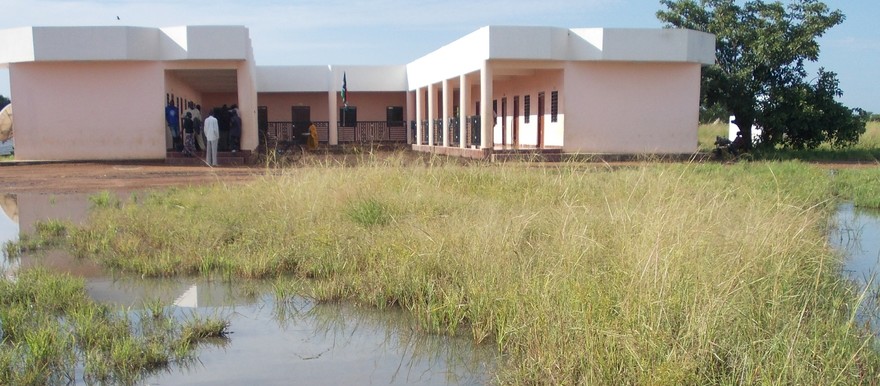People displaced by floods to Riang Aluelweng village in Aweil, the state capital of Northern Bahr El Ghazal, are threatening not to return to their lands even after the seasonal rains stop and floodwaters subside. More than 2000 displaced people who were displaced by the heavy flooding in Aweil have been asked by the land authorities to leave the place to return to their original places.
Speaking to Radio Tamazuj on Tuesday, Angui Diing the state Minister of Physical Infrastructure said the land was given to these citizens during the heavy flooding of their places. He said that their stay at Riang Aluelweng should be temporary.
“We are telling them to leave this place after the stoppage of the rains including those who came from Khartoum last year and now staying at Maduany payam near the state airport. That land is for the airport, they are inside the fence of the airport, so they are also given one month to leave. They already have land surveyed behind Apada Area,” he said.
In the same interview, the minister pointed out that even the returnees at Apada are there temporarily because the land there belongs to the state university. Angui point out that the ministry formed a technical committee for the land dispute and land policy management.
Displaced people, for their part, said in interviews at Riiang Aluelweng that they did not want to return to poorly drained areas.
Abuk Teng Athian said: “We cannot leave this land unless the government digs the channel for the water to pass through. Flooding is natural and no one can control, but there is word in the Bible which says, God helps when you are doing something. So this is the same that our government can dig the channel or running water because if the rains stop, it does not mean that is the end of the rain. And what of next year? Will it not rain?”
Meanwhile Adut Deng Kuol, said “We don’t feel like citizens in this country, our government knows the area is lowland on which no common man can afford to set up water control. These very big people give themselves the high-lying area… leaving vulnerable people on lowland and when the waters break out, we are most affected while they are enjoying up. Me with my family will never leave this area if the rest go back.”
Photo by Radio Tamazuj: The Northern Bahr El Ghazal State Ministry of Physical Infrastructure in early September 2012



